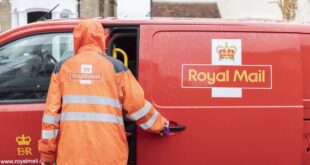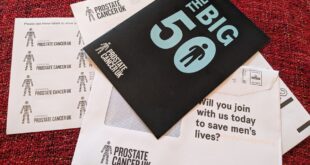The Driver and Vehicle Licensing Agency (DVLA) has issued a scam warning to UK motorists amid a rise in fuel shortages.
With the DVLA now dealing with backlogs as a result of the pandemic and driver shortages, the agency has moved to warn motorists over potential scams and has said that drivers need to be more vigilant than ever with many now being targeted with texts and e-mails with reminders about overdue tax payments.
The DVLA said in a tweet: “Scammers pretend to be DVLA giving false information through texts and emails ‘phishing’ for your information. Don’t fall for it.”
Scammers are said to pose as the DVLA in order to steal money or personal details from drivers with some using low figures to make the scam more believable. This echoes the Royal Mail scam where residents were told that they needed to pay roughly £3 to have their item delivered.
Get all the latest Glasgow news and headlines sent straight to your inbox twice a day by signing up to our free newsletter.
From breaking news to the latest on the coronavirus crisis in Scotland, we”ll have you covered.
The morning newsletter arrives every day before 9am and the evening newsletter, manually curated by the team, is sent between 4pm and 5pm, giving you a round up of the most important stories we’ve covered that day.
To sign up, simply enter your email address into this link here.
The NHS have also been victim to scammers with Covid passports and vaccine reminders being sent out asking for payment and personal details of those said to be eligible.
The warning comes amid fuel shortages which has seen many people up and down the country panic buy with some filling up petrol cans making the shortages even worse. with a £30 limit now imposed in many UK stations.
In their warning tweet, they also included details on how to keep your personal data safe from any potential scammers.

A warning on the government website reads: “Some websites, emails or phone numbers look like they’re part of an official government service when they’re not, or claim to help more than they actually do.
“Some make you pay for things that would be free or cheaper if you use the official government service.”
Report internet scams and phishing
Report misleading websites, emails, phone numbers, phone calls or text messages you think may be suspicious.
Do not give out private information (such as bank details or passwords), reply to text messages, download attachments or click on any links in emails if you’re not sure they’re genuine.
Suspicious emails
Forward the email to report@phishing.gov.uk. The National Cyber Security Centre (NCSC) will investigate it.
Text messages
Forward the text message to 7726 – it’s free. This will report the message to your mobile phone provider.
Adverts
Report scam or misleading adverts to the Advertising Standards Authority. You can report adverts found online, including in search engines, websites or on social media.
You can also report scam or misleading adverts to Google if you found them in Google search results, or report to Bing if you found them in Bing search results.
If you think you’ve been a victim of an online scam or fraud
Contact Action Fraud if you think you’ve lost money or been hacked because of an online scam or fraud and you’re in England or Wales. You can:
- report online – either sign up for an account or continue as a ‘guest’
- call 0300 123 2040
If you’re in Scotland and you’ve lost money because of an online scam or fraud, report the crime to Police Scotland.
Avoid misleading government websites, emails and phone numbers
Some websites, emails or phone numbers look like they’re part of an official government service when they’re not, or claim to help more than they actually do. Some make you pay for things that would be free or cheaper if you use the official government service.
Search on GOV.UK to find official government services and phone numbers, for example if you want to apply to the DVLA for a driving licence.



